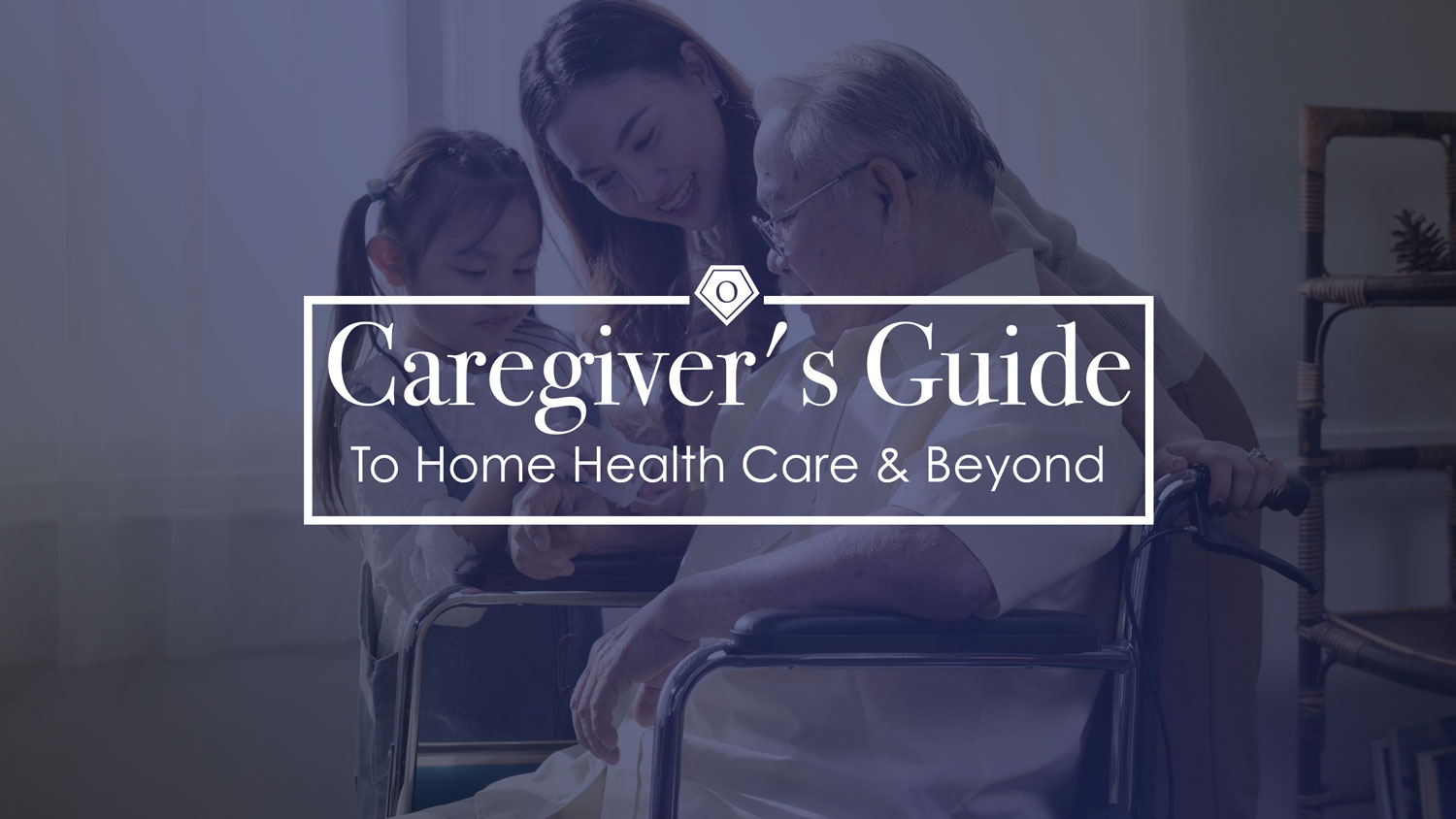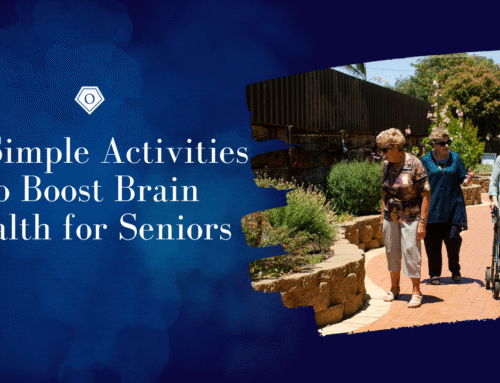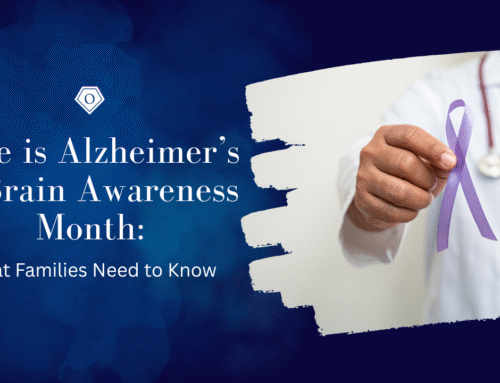Are you taking care of a loved one from home?
AARP’s November 2021 “Home and Community Preferences” survey showed that two-thirds of U.S. adults, and more than three-quarters of those age 50-plus, want to stay in their homes as they get older. Family caregiving is the primary way this wish is made a reality.
The 2020 Caregiving in the U.S. report from AARP and the National Alliance for Caregiving found that 43 percent of family caregivers look after people who live in their own homes, and 40 percent share a residence with the care recipient.
Caregiving for a loved one is a significant task that can take a physical and emotional toll. We’ve put together steps and resources to consider as you take on this heartfelt challenge.
Develop A Plan
Caregivers must plan for the short and long term. Family caregivers must stay on top of daily routines, doctor’s appointments, and prescriptions. While you cannot anticipate every scenario, be forward-thinking so you can respond quickly and effectively in an emergency. Most importantly, know that you cannot do it alone. Consider reaching out to family, friends, or a local home health care agency. Here are more tips on caring for an elderly loved one from home.
Make Home Safety Adaptions
Home safety adaptions make patient and caregiver’s life easier. Regular home safety checks can prevent falls, hospital visits, and even death. You can check Onyx Home Care’s home safety checklist here.
Manage Health Needs
Caring for the aging or chronically ill can mean managing many different medications. The key is to stay organized and ask for help when you can no longer effectively manage medications. Home health services can help family caregivers manage medications and stay on top of side effects. You can also read more about managing multiple chronic conditions here.
Maintain A Healthy Lifestyle
Many family caregivers operate as nurses, life coaches, nutritionists, and social directors. Family caregivers and patients need to maintain a healthy lifestyle. The patient and caregiver must address social needs and avoid isolation, manage nutrition, exercise, and establish boundaries to find balance. When balance is not possible, it’s time for home health care.
Get Help
Caregivers often need help as their loved one’s illness progresses. You might need a little bit of assistance or a lot! Either way, home health care allows families to start with small tasks like medication management and add services as needs increase.
Care Options for Home Health and Beyond
Informal care involves support from friends, family, neighbors, and others who share the responsibility of caregiving.
Information and referral help you identify local resources. Area Agencies on Aging (AAAs), senior centers, or community mental health programs help you find potential services, such as adult day care programs, respite care, and more.
Care management services can locate and provide management of services for your loved one. Professional care managers are also called case managers and usually have backgrounds in counseling, social work, or a related healthcare field. Case managers work with you, the physician, and the patient to identify and arrange transportation, home care, meals, and daycare services.
Legal and financial counseling is needed when a loved one cannot manage legal or financial affairs. In addition, family caregivers may need Advance Directives for healthcare decisions, management of assets, public benefits planning, and even litigation.
Transportation services are free or low-cost for those with disabilities. The Americans with Disabilities Act requires transit agencies to provide curb-to-curb paratransit service to individuals unable to use regular public transportation. Paratransit generally consists of wheelchair-accessible vans or taxis for people with disabilities. To find out about paratransit in your community, contact your local Area Agency on Aging.
Nutrition programs are often offered by churches, synagogues, housing projects, senior centers, community centers, schools, and day programs. Day programs also provide opportunities for socializing.
Respite care is comprised of adult day care and home care services. It offers relief for family, partners, and friends participating in care so they can take a break from the constant demands of caregiving.
Adult daycare offers seniors the opportunity to socialize and enjoy peer support in a safe environment. It also offers family caregivers a break for a person that cannot be left alone but does not require 24/7 nursing care.
Home health care combines health care and supportive services for those who recently had surgery, are diagnosed with dementia or Alzheimer’s, need nursing care, are disabled, or need medical assistance from home. There is medical home health care and non-medical home health care. The right provider can scale services as needs progress. Costs depend on the level of care needed.
Hospice care provides special services to the terminally ill to improve the quality of life by controlling illness symptoms and restoring dignity for the person until death. Medical, nursing, social services, dietary consultation, counseling, and emotional support are offered to patients and caregivers through hospice care.
Caregiver support groups offer encouragement, understanding, and support from others with similar concerns. Support groups can be found through hospitals, mental health programs, and even social media. Family Caregiver Alliance offers three online groups. Onyx Home Care also provides a local Caregivers of Central Florida Facebook (Meta) support group.
Resources:
Aging Life Care Association
(formerly the National Association of Professional GeriatricCare Managers)
Eldercare Locator
Medicare and Medicaid (MediCal in California)
Meals on Wheels America
Additional support
National Adult Day Services Association
National Hospice and Palliative Care Organization
Offers information for families and caregivers through the website caringinfo.org, including downloadable Advance Directives for every state
National Volunteer Caregiving Network
Visiting Nurses Association of America
Recommended Reading For Family Caregivers:
Books:
FCA participates in the Amazon Smile program. Amazon will donate a portion of your purchase to FCA. You can support FCA by visiting smile.amazon.com/ch/94-2687079 before your purchase.
The Caregiver Helpbook: Powerful Tools for Caregiving, Vikki L. Schmall, Marilyn Cleland, and Marilynn Sturdevant (3rd Edition). Available in Spanish. www.powerfultoolsforcaregivers.org
The 36 Hour Day: A Family Guide to Caring for Persons with Alzheimer’s Disease, Related Dementing Illnesses, and Memory Loss, Nancy Mace and Peter Rabins, Sixth Edition (2017). Available in paperback.
The Complete Eldercare Planner, Revised and Updated Edition: Where to Start, Which Questions to Ask, and How to Find Help, Joy Loverde (2009). Available in paperback.
Blogs:
Top Tips For Caring For An Elderly Parent From Home
Are dementia and Alzheimer’s the same thing?
Does Mom need to be in a memory care facility?
Should I care for Dad on my own, or is it time for help?
How To Thrive In The Sandwich Generation
10 Ways To Combat Caregiver Burnout
Choosing long-term care is a burden that often falls to adult children and family caregivers. Our team is here to support you throughout the journey. Download our booklet to explore options that are right for your aging loved one and family. Download the booklet here.






